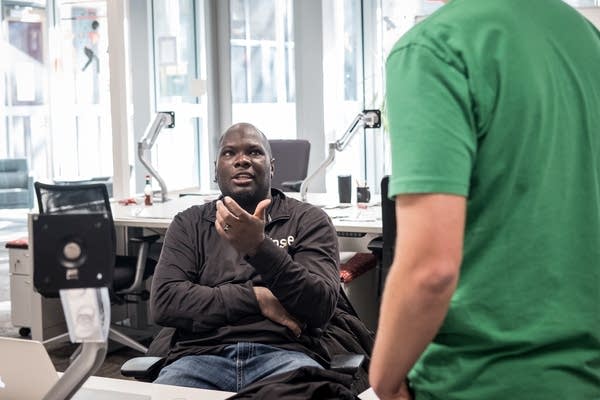Tech firm's success may open doors for Twin Cities black entrepreneurs

Clarence Bethea, CEO of Upsie, a tech company that sells warranties that undercut retailers' prices, speaks to a colleague in the office on Feb. 6.
Caroline Yang for MPR News
Go Deeper.
Create an account or log in to save stories.
Like this?
Thanks for liking this story! We have added it to a list of your favorite stories.


